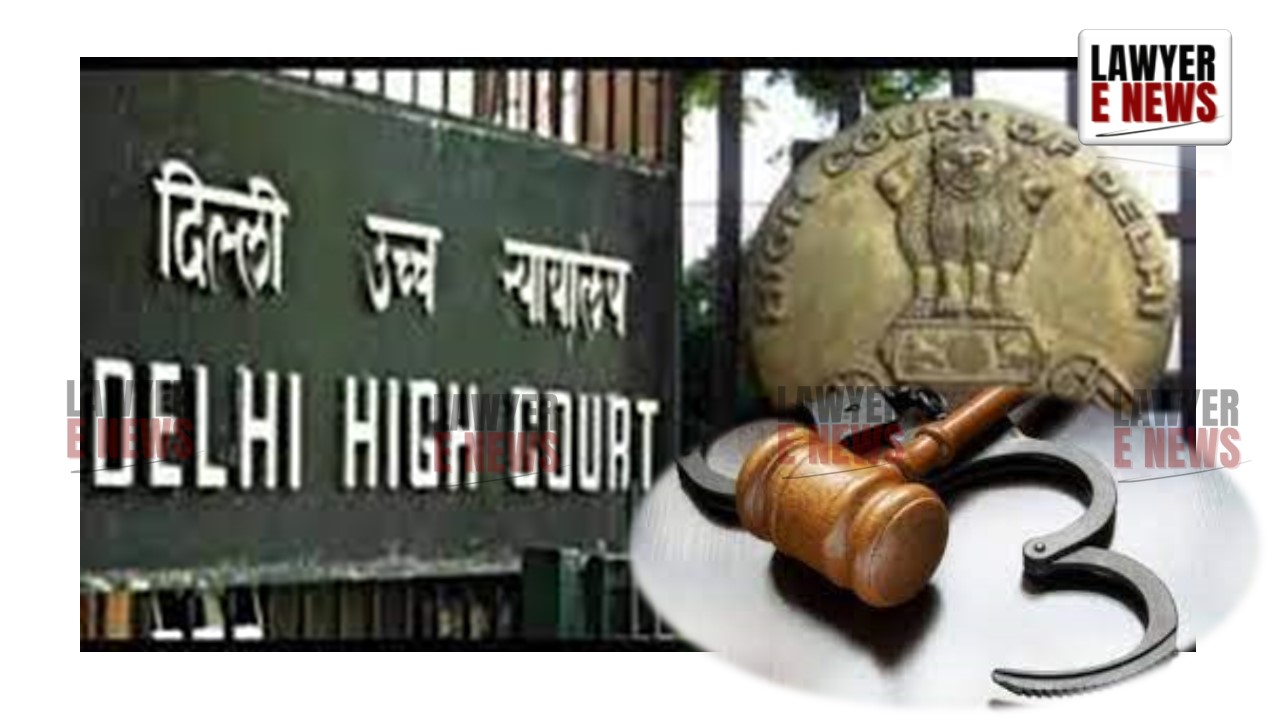-
by Admin
15 February 2026 5:35 AM



In a significant ruling Delhi High Court granted bail to Ujjair Ahmad @ Ozair Ahmed, an accused under the Unlawful Activities (Prevention) Act, 1967 (UAPA), citing prolonged incarceration and limited evidence against him. The Court emphasized that while UAPA imposes strict conditions on bail under Section 43(D)(5), these cannot override constitutional guarantees under Article 21 of the Constitution of India.
The judgment, delivered by a division bench comprising Justice Prathiba M. Singh and Justice Dharmesh Sharma, allowed the appellant’s plea under Section 21(4) of the National Investigation Agency (NIA) Act, challenging the Special NIA Court’s order rejecting bail.
The appellant had been in custody for over 11 years since his arrest on October 30, 2013, and the trial was far from completion, with over 150 witnesses yet to be examined. Despite the trimmed list of witnesses, the Court observed that the likelihood of concluding the trial in a reasonable timeframe was slim.
Providing ₹30,000 as zakat (charity) to an individual, Haider Ali, involved in the Patna bomb blasts. The appellant claimed he was unaware of Ali’s alleged terrorist links.
Alleged participation in gatherings where jihad was incited.
The trial court had earlier discharged the appellant from more serious charges under Sections 19, 38(2), and 39(2) of the UAPA, noting a lack of evidence of his association with banned organizations like the Indian Mujahideen. He was facing trial only under Sections 17 (funding terrorism) and 18 (abetting terrorism) of the UAPA.
Balancing UAPA’s Restrictions and Article 21
The High Court relied on the Supreme Court's ruling in Union of India v. K.A. Najeeb (2021), which allows constitutional courts to grant bail even under stringent laws like UAPA when prolonged incarceration violates fundamental rights under Article 21. The Court observed:
"Statutory restrictions under Section 43(D)(5) of UAPA cannot be used to perpetuate a breach of the constitutional right to life and liberty, particularly in cases where trial completion is unlikely in the near future."
The Court also noted that several co-accused, who pleaded guilty, had received lesser sentences (maximum of 10 years), making the appellant's continued incarceration disproportionate.
The Court granted bail to the appellant, reasoning that:
The appellant’s incarceration exceeded the sentences of similarly placed co-accused.
The allegations against him were limited and primarily related to financial assistance without direct evidence of intent to fund terrorism.
The delay in trial was not attributable to the appellant, and his prolonged detention without conviction violated Article 21.
To safeguard against potential risks, the Court imposed stringent bail conditions, including restrictions on the appellant’s movement, surrender of his passport, and regular reporting to authorities.
The judgment underscores the judiciary’s responsibility to balance national security concerns with fundamental rights. By granting bail to the appellant, the Delhi High Court reaffirmed that statutory restrictions under UAPA cannot override the constitutional guarantee of timely justice.
Date of Decision: January 16, 2025
